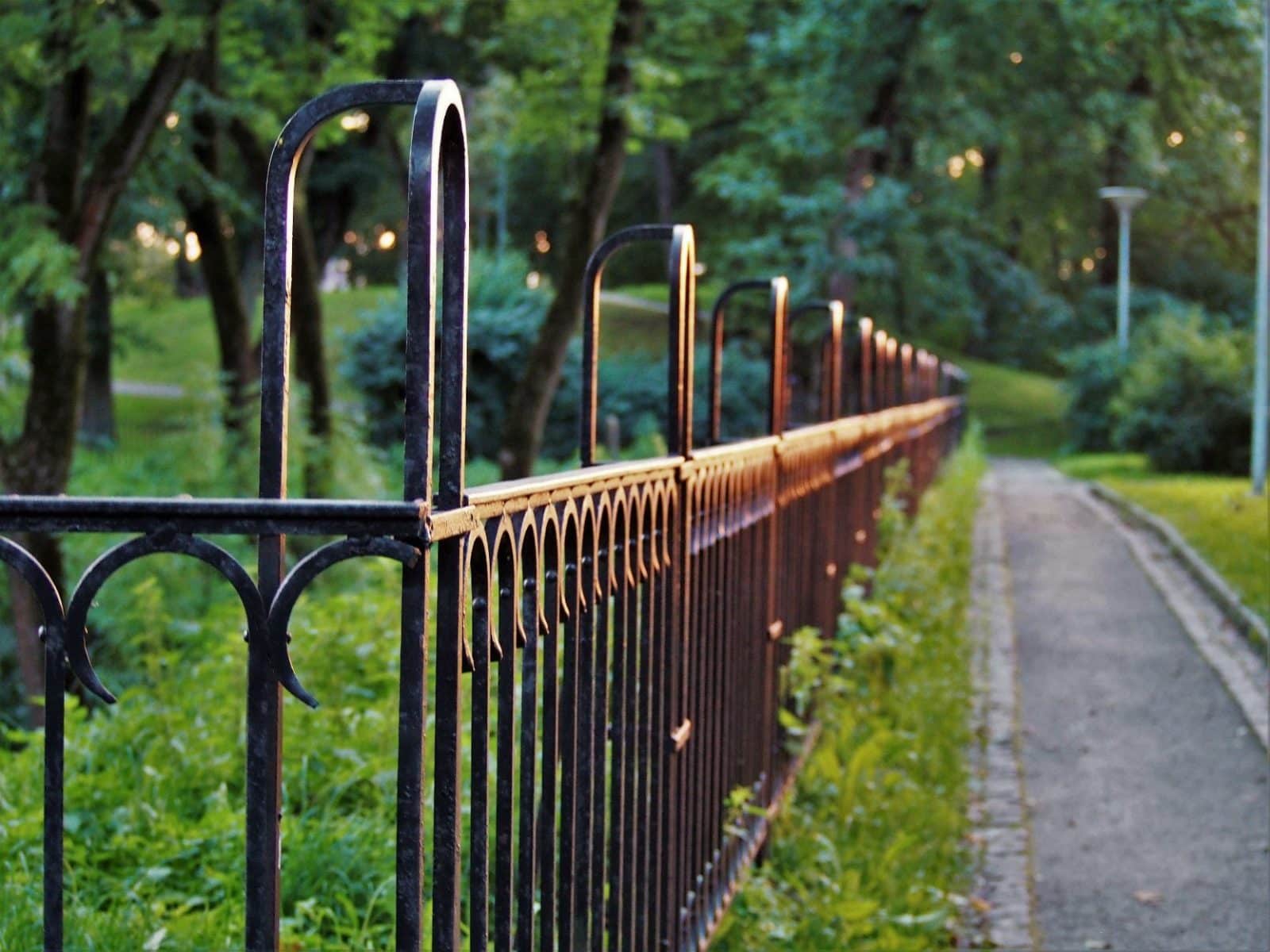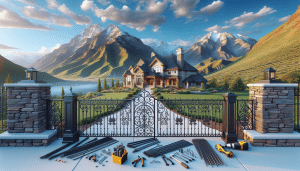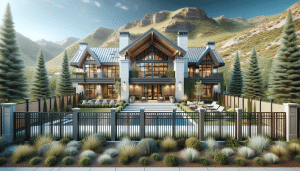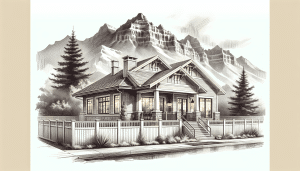When it comes to choosing the right material for your fence, you have several options: wood, vinyl, metal, or composite. Each material has its own unique characteristics and advantages. Let’s explore them to help you make an informed decision.
Wood Fences
Wood fences have a timeless appeal and are a popular choice among homeowners. They offer a natural and warm aesthetic that can complement various architectural styles. Wood fences can be constructed using different types of wood, such as cedar, pine, or redwood, each with its own durability and appearance.
Advantages:
- Aesthetic appeal: Wood fences provide a classic and charming look to your property.
- Customization: Wood is a versatile material that can be easily tailored to your desired design, height, and style.
- Cost-effective: Wood fences are often more affordable compared to other materials.
Considerations:
- Maintenance: Wood fences require regular maintenance, including staining or painting, to protect them from the elements and ensure longevity.
- Durability: While wood is durable, it may be susceptible to rot, pests, and weather damage. Choosing high-quality wood and applying protective coatings can help mitigate these issues.
Vinyl Fences
Vinyl fences have gained popularity in recent years due to their durability and low maintenance requirements. They are made of PVC (polyvinyl chloride) and offer a clean and polished appearance.
Advantages:
- Low maintenance: Vinyl fences are resistant to rot, decay, and pests, eliminating the need for regular painting or staining.
- Durability: Vinyl fences can withstand harsh weather conditions without warping, cracking, or fading.
- Variety of styles: Vinyl fences come in various styles, including picket, privacy, and decorative options, allowing you to choose based on your preferences.
Considerations:
- Upfront cost: Vinyl fences may have a higher upfront cost compared to some other materials. However, their long-term durability and minimal maintenance requirements can offset this initial investment.
- Limited color options: Vinyl fences are typically available in white or beige tones, limiting the color choices.
Metal Fences
Metal fences, such as aluminum or steel, are known for their strength, durability, and security. They can provide both a visually appealing look and enhanced protection.
Advantages:
- Strength and security: Metal fences offer high levels of strength and security, serving as a robust physical barrier.
- Longevity: Metal fences are resistant to rot, pests, and weather conditions, ensuring a long lifespan.
- Minimal maintenance: Metal fences require minimal maintenance, mainly occasional cleaning to remove dirt or debris.
Considerations:
- Cost: Metal fences can be more expensive than some other materials due to the higher cost of metal.
- Heat absorption: Metal fences may absorb heat, which could be a consideration in hot climates.
Composite Fences
Composite fences are made from a combination of wood fibers and recycled plastic. They offer the natural look of wood with the low maintenance benefits of vinyl.
Advantages:
- Aesthetic appeal: Composite fences mimic the appearance of wood without the maintenance requirements.
- Durability: Composite fences are resistant to rot, decay, and pests, making them a long-lasting option.
- Low maintenance: Composite fences do not require staining or painting and can be easily cleaned with soap and water.
Considerations:
- Cost: Composite fences may have a higher upfront cost compared to wood fences.
- Limited color options: While composite fences come in various styles, the color options may be limited.
Choosing the right material for your fence depends on your preferences, budget, and the specific needs of your property. Utah Fencing Company can provide expert guidance to help you select the material that best suits your requirements. Contact us at 801-905-8153 to learn more and start enhancing your home’s security today.




